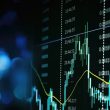by Kevin McCreadie, AGF Management Ltd.
Governments around the world are starting to re-open their economies after effectively shutting them down because of the COVID-19 pandemic. AGF’s CEO and Chief Investment Officer discusses the market implications of the restart and what a second wave of the pandemic could mean for investors.
We’re now more than two months removed from the first days of the bear market selloff in equities and it’s more than a month since the beginning of the rally off the bottom. What stands out to you most about the experience to date?
The speed at which markets have reacted has been incredible to witness. If you recall, there was a high degree of complacency in the very early days of the COVID-19 outbreak in China and I remember telling Greg Valliere (AGF’s Chief U.S. Policy Strategist) that people aren’t taking this seriously enough. That was probably the first week in February and then markets, after a brief hiccup, rallied to new highs. It was only when it became clear that the virus wasn’t going to be contained, that panic set in. In all my years, I have never seen markets fall that much in such a short period of time, nor have I seen them recover so quickly to the extent they have in recent weeks. Of course, a lot of that has to do with the timely response and magnitude of the assistance from governments and central banks around the world. I don’ t think markets would be in the same place today without that support.
Now that there are signs of the pandemic abating in parts of the world, investors are turning their attention towards the restart of the global economy. What does this mean for markets going forward?
Up until now markets have been focused primarily on data about the pandemic and the massive stimulus packages that have been announced to keep the economic toll from ballooning out of control. These will continue to be important touchstones for investors to monitor in the weeks ahead; however, the direction that markets take next will likely hinge on the efforts to restart economies around the world and whether those efforts go off without too many hitches. To that end, China is already back operating at an estimated 80% to 90% of economic capacity since resuming production at the end of March, but the U.S. and some other developed market countries such as Italy and Canada are only now starting to reopen parts of their economy and, in many cases, it’s still unclear how long the process will take to get these economies up to full speed again or what that even means given the impact the pandemic is bound to have on our consumer habits going forward. In some ways, the market is ahead of itself. Shutting businesses and whole cities down is analogous to flipping a switch. But a restart is going to be a slow, gradual and, in many ways, a more difficult process.
How will the restart effect economic data in the coming weeks?
We’ve talked previously about how ugly GDP growth forecasts are for the second quarter, and even if the restart goes smoothly, those numbers are still going to be dismal. Too much damage has already be done and it’s inevitable that we’ll end this quarter in a severe recession. That said, there should be data points over the next few weeks that provide hints as to how well the restart is going, including third quarter forecasts. Markets are probably going to be choppy through this, but if there are incremental signs of a recovery in some of the data, than you’re likely to see solid support for stocks and a continued rotation away from some of the “stay-at-home” names that did well in early in the selloff towards those that could benefit in a back-to-work scenario. Of course, all bets are off if the restart coincides with a resurgence in new cases of the virus.
And what happens if there is a second wave to the pandemic?
A second wave would be difficult for markets, but I’m not convinced that it would result in a retest of the recent lows unless the number of new cases becomes significant enough to derail the economic recovery for an extended period. Even then, not every name listed on an index that may retest its lows will fall in lockstep. It’s also important to recognize how much we’ve learned about this initial wave of the virus and that should help us deal with a second wave more effectively if, and when, it happens. But this is obviously a big risk and the reason why there is so much debate about re-opening the economy. Governments have a responsibility to keep people safe from the virus as best they can, but are being forced to weigh that against the economic and psychological damage being inflicted on society by the shutdown. It’s a very difficult situation that will create volatility as virus data is scrutinized for signs of a new outbreak. At the same time, positive news regarding potential therapies and/or promising vaccine candidates may cause upward spikes in equities on the expectation they could result in a quicker return to normal.
On a more personal note, what have you missed most about not being able to live your life as freely as you did just a few short weeks ago?
My family first and foremost. They’ve been in the U.S. this whole time, while I’ve been here in Toronto because of the travel restrictions. That’s been tough, so it will be a huge relief when we’re able to see each other again. Beyond that, it’ll be nice to get back to the gym and get in some proper exercise and start to feel healthy again.
Kevin McCreadie is Chief Executive Officer and Chief Investment Officer at AGF Management Ltd. He is a regular contributor to AGF Perspectives.
Visit our new COVID-19 resource page dedicated to the latest insights to help navigate through these unprecedented times.
The commentaries contained herein are provided as a general source of information based on information available as of April 28, 2020 and should not be considered as investment advice or an offer or solicitations to buy and/or sell securities. Every effort has been made to ensure accuracy in these commentaries at the time of publication, however, accuracy cannot be guaranteed. Investors are expected to obtain professional investment advice.
The views expressed in this blog are those of the author and do not necessarily represent the opinions of AGF, its subsidiaries or any of its affiliated companies, funds or investment strategies.
AGF Investments is a group of wholly owned subsidiaries of AGF and includes AGF Investments Inc., AGF Investments America Inc., AGF Investments LLC, AGF Asset Management (Asia) Limited and AGF International Advisors Company Limited. The term AGF Investments m ay refer to one or more of the direct or indirect subsidiaries of AGF or to all of them jointly. This term is used for convenience and does not precisely describe any of the separate companies, each of which manages its own affairs.
™ The ‘AGF’ logo is a trademark of AGF Management Limited and used under licence.
About AGF Management Limited
Founded in 1957, AGF Management Limited (AGF) is an independent and globally diverse asset management firm. AGF brings a disciplined approach to delivering excellence in investment management through its fundamental, quantitative, alternative and high-net-worth businesses focused on providing an exceptional client experience. AGF’s suite of investment solutions extends globally to a wide range of clients, from financial advisors and individual investors to institutional investors including pension plans, corporate plans, sovereign wealth funds and endowments and foundations.
For further information, please visit AGF.com.
© 2020 AGF Management Limited. All rights reserved.
This post was first published at the AGF Perspectives Blog.














